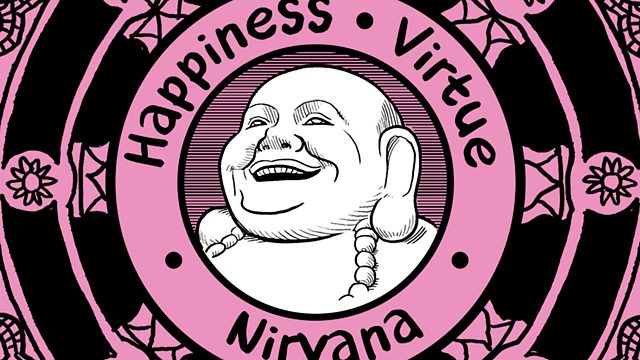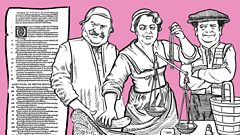Justin Champion on Max Weber and the Protestant Ethic
Justin Champion considers where our culture's beliefs about the moral power of hard work come from. The German thinker and workaholic Max Weber thought he knew: Protestantism.
Hardworking families, alarm clock Britain, shirkers and strivers...there's no doubt that ideas about the moral power and value of hard work are embedded in our culture. But where did these ideas come from? The historian, Justin Champion, explores the ideas of the German thinker and father of sociology Max Weber.
In his most famous book, The Protestant Ethic and the Spirit of Capitalism, Weber set out his idea that the roots of our beliefs about the value of hard work and material success are to be found in the religious thinking of Protestantism, the Puritans especially and Calvin in particular. For them finding a vocation, working hard and achieving material success were evidence that they were one of the elect: the people God had saved from eternal damnation.
Those religious ideas have resonance today, albeit translated into a secular setting: Justin talks to Steve Finn, a former armed robber now involved in running, Blue Sky, a social enterprise that offers employment to ex-offenders so they can turn their lives around. He also hears from the entrepreneur Sara Murray for whom work and life are happily intermingled and whose sense of mission around the success of her company, Buddi, drives her.
Justin also looks at the darker side. With the writer Madeleine Bunting, he explores how our culture's obsession with the "work ethic" can leave people unable to participate feeling deficient and judged.
Producer: Natalie Steed.
Last on
Clip
-
![]()
Max Weber and the Protestant Ethic
Duration: 01:51
Broadcasts
- Wed 1 Apr 2015 12:04Βι¶ΉΤΌΕΔ Radio 4
- Wed 12 Sep 2018 12:04Βι¶ΉΤΌΕΔ Radio 4
Learn more with The Open University
Watch the animations and then delve into free related content from The Open University.
Podcast
-
![]()
A History of Ideas
Melvyn Bragg and guests discuss the work of key philosophers and their theories.



